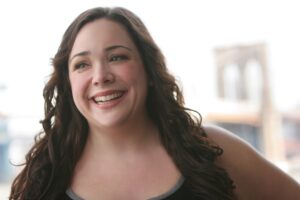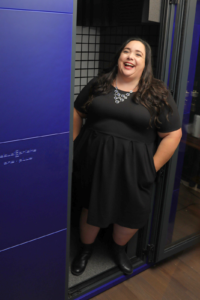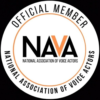I’m thrilled to share with you that I’ve been included in USA Today’s list of Top 10 Emerging Entrepreneurs of 2023!
I’m honored to stand alongside such talented changemakers and business owners. This recognition isn’t just a testament to my journey as a voice actor, but a nod to how the arts and humanities can foster an entrepreneurial spirit. As a millennial business owner, I’ve embraced the idea of pursuing my passion and making it financially viable.
I’m no Rihanna, but it’s possible to make the arts financially successful at a smaller scale. I love that I can marry my art and performance talents with my desire to be successful in business and commerce.

Like many “overnight successes,” it’s taken me years to get here. I started acting when I was 11 but didn’t earn my first paycheck for acting until I was in college. By my 20s I was living in New York City, as a working actor. I had a recurring role on Army Wives, a role in the Bollywood Film English Vinglish and I even got to be in an episode of National Geographic’s LockedUp Abroad!
But by my early 30s, my escalating psoriatic arthritis led me back to Buffalo. That’s when my career took an unexpected turn into the world of voice acting. Transitioning from on-screen to behind the mic allowed me to pursue my passion in a format – voice over – that allowed me the flexibility I needed.
Do I still miss being in front of a camera? You bet. But this pivot has let me work with global professionals—from directors, to clients, to brands like PG and the NFL—all from my home studio where I can take a break when I need to stretch or soak with Epsom salts after a long day’s work.

There’s a lack of representation in the arts, both when it comes to disabled characters and to actors who also have disabilities playing in the available roles. For example, the 2021-2022 GLAAD Where Are We on TV Report, found only 2.8% of primetime TV characters were disabled. Similarly, a 2019 report from the Ruderman Family Foundation found that only 22% of characters with disabilities in 10 shows were also played by actors with disabilities.
This USA Today honor isn’t just a personal win—it celebrates the magic of arts meeting entrepreneurship. It also reminds me of the incredible community I’m part of. Here’s to more adventures at this exciting intersection of creativity and business.





